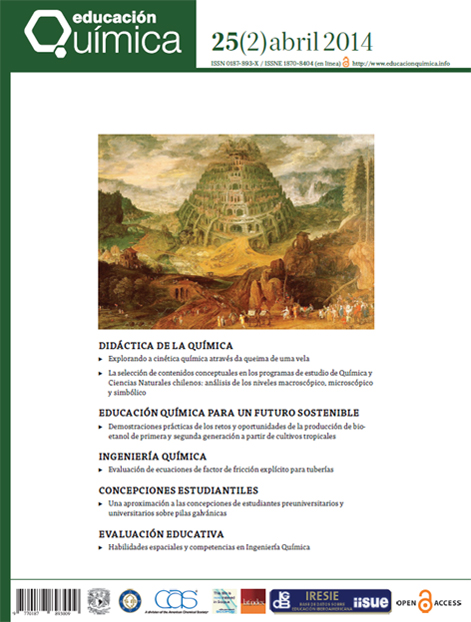Organic chemistry structuration from dual and unitary theories: a Kuhnian look
Main Article Content
Abstract
Reflections on how scientific knowledge and chemical development has been formulated and constructed,have led to an in-depth review and analysis about the nature of the theories, laws, modelsand concepts, which can be termed as the “conceptual structure of chemistry.” This work focuses onthe review and analysis of both the dual theory of J. J. Berzelius theory, as well as the unitary one by A.L. Laurent, as potential structural axes of Organic Chemistry. In this sense, we try to reveal the confrontationof positions of empirical scientific communities representative of nineteenth century. Theunitary theory — or antidualistic — has consolidated today as theory, to achieve assertive explainingof chemical phenomena, which has been not possible with the dual theory. Such revision of the twostructural theories was made from an analytical perspective, which included the theoretical assumptionsof Thomas Kuhn on the development of scientific knowledge. This account of scientificconceptions and preconceptions own of its time, on the “effective” matter composition, with an approachto different concepts of “weight” in the construction of such theories, which will hopefullyreflect the historical-epistemological discussion on the chemical nature of scientific knowledge.
Article Details
Citas en Dimensions Service

Educación Química por Universidad Nacional Autónoma de México se distribuye bajo una Licencia Creative Commons Atribución-NoComercial-SinDerivar 4.0 Internacional.
Basada en una obra en http://www.revistas.unam.mx/index.php/req.




